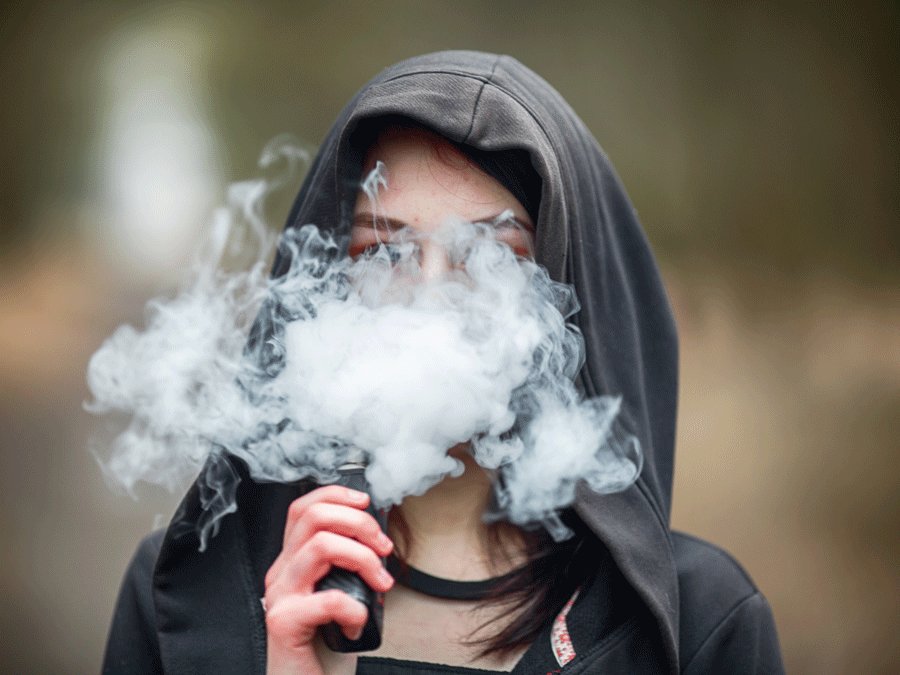
Washington State Attorney General Bob Ferguson filed a consumer protection lawsuit Sept. 2 against the e-cigarette company Juul, asserting that the company’s products and marketing target underage consumers.
Filed in King County Superior Court, the lawsuit also alleges Juul deceived consumers about the addictiveness of their product. In a virtual news briefing Sept. 2, Ferguson said Juul did not make clear for some time that their products even included nicotine.
“Juul put profits before people,” Ferguson said. “Pushing unfair and deceptive marketing strategies appealing to youth, the company fueled a staggering rise in vaping among teens.”
Juul launched its products in 2015 and quickly became an industry giant, controlling more than 70% of the e-cigarette market share by the end of 2018, according to Ferguson’s office. Ferguson alleges this success was in part fueled by their marketing strategy.
Juul’s advertisements have featured young models, bright color themes and sweet, fruity flavored products — all of which, the lawsuit asserts, subversively target young consumers. The lawsuit also highlights similarities in advertising between Juul and other big tobacco brands such as Camel and Kool, which have been punished in court for similar marketing practices.
The Pierce County Healthy Youth Survey showed an increase in e-cigarette use throughout grades six to 12 from 2016 to 2018. The largest uptick was in 12th-graders, who saw a 12% increase (from 18% to 30%) in vape use.
Peninsula High School Principal Joe Potts told the KP News the vast majority of his students are not smoking or using vaping products, but that this is an issue of concern nonetheless. Potts said vape products are expensive and some people resort to using homemade or second-hand vape juice.
“It’s anyone’s guess what’s in there,” he said. “And whatever’s in there is going in your lungs, in your body. And that’s deeply concerning to me.”
Juul has repeatedly denied intentionally making their products appealing to minors, but former Juul co-founder James Monsees admitted in a congressional hearing in 2019 that the company had made mistakes.
“We’ve made missteps,” Monsees said. “I understand the criticism of some of our past actions, but we moved on very quickly.”
Juul claims to vehemently oppose youth using their product and publicly supports raising the legal age for purchasing tobacco and vaping products to 21 nationwide. They also briefly offered an anti-vaping curriculum to schools in California but abandoned the effort after comparisons to similar attempts made by big tobacco companies.
The 2020 National Youth Tobacco Survey showed a noticeable drop in the use of vape products among high school and middle school students — from approximately 5.4 million in 2019 to 3.6 million in 2020. Juul lauded this dip in young consumers as a success.
Among the three types of vape devices (refillable, cartridge and disposable), cartridge vapes, like Juul, are still the most popular among minors, but disposable vape use rose by approximately 1,000% from 2019.
Sudden vaping-related illnesses have cropped up across the country, often resulting in hospitalization, weeks of close medical monitoring and permanent respiratory damage. Some cases have been fatal. The U.S. Centers for Disease Control and Prevention identified a link between the vast majority of these cases to vitamin E acetate, a thickening agent found in some vaping products, especially those containing THC (tetrahydrocannabinol, the chemical responsible for most of marijuana’s psychoactive effects).
Potts said Peninsula School District is committed to keeping students healthy and offers addiction treatment for those who need it.
Ferguson said this lawsuit aims to force Juul to cease its unlawful marketing practices but comes with several punitive measures as well. The lawsuit asserts Juul failed to obtain the proper business license until 2018 and deems all prior sales unlawful. The suit requests disgorgement of all unlawful profits as well as a $2,000 penalty for each violation of the Washington State Consumer Protection Act, which would include every sale made before Juul acquired proper licensing.
UNDERWRITTEN BY THE FUND FOR NONPROFIT NEWS (NEWSMATCH) AT THE MIAMI FOUNDATION, THE ANGEL GUILD, ADVERTISERS, DONORS AND PEOPLE WHO SUPPORT INDEPENDENT, NONPROFIT LOCAL NEWS